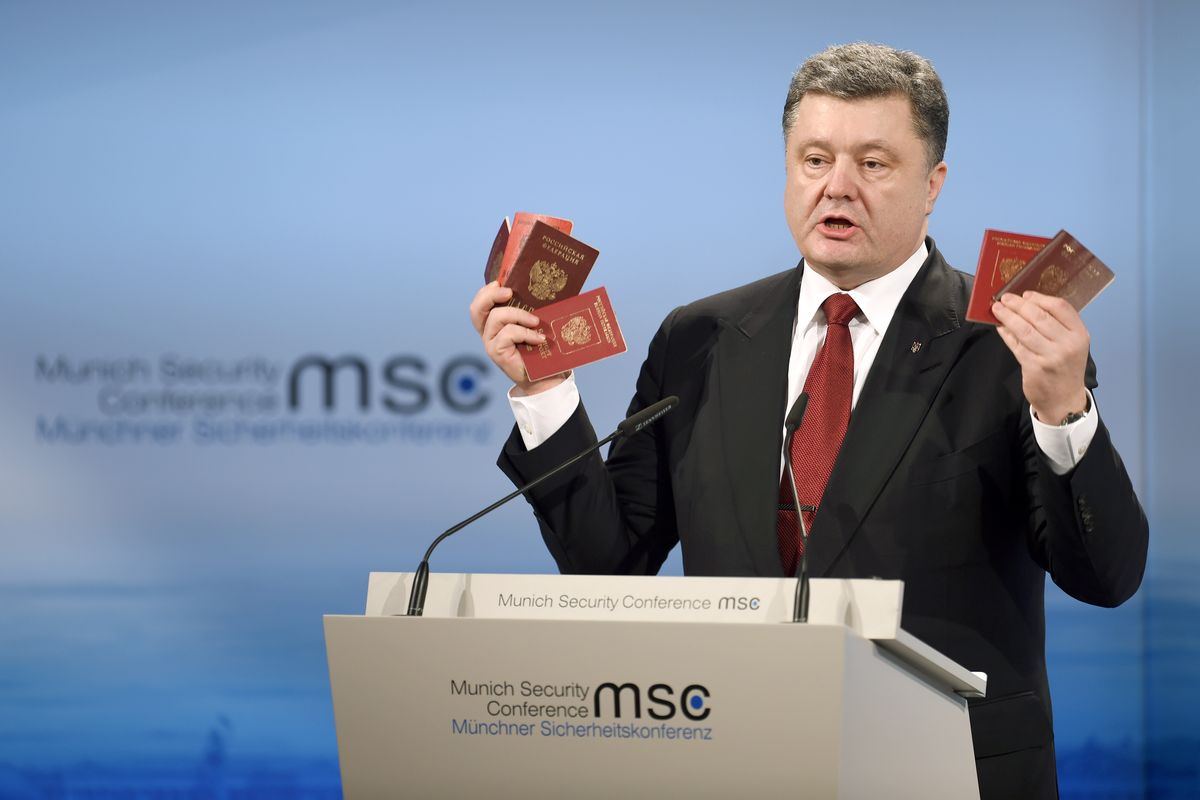Ukraine crisis dominates European security conference

MUNICH, Germany – Serious tension consumed an international security conference Saturday as the United States and its allies traded blame with Russia for the fighting in eastern Ukraine, fueling uncertainty about a new diplomatic effort by France and Germany to end the worst violence in five months.
The differences were underlined in terse speeches and a burst of derisively undiplomatic laughter that greeted Russian Foreign Minister Sergei Lavrov’s claim that Russia’s annexation of Crimea last year followed a legitimate vote – held under the guns of thousands of Russian troops and unrecognized internationally – for self-determination.
“Well, you might find it funny. I also find many things you said funny,” the steely-eyed Lavrov responded. He repeated charges that the United States and the European Union were responsible for the fighting, the overall downturn in relations and other disputes. He repeated Moscow’s denial that Russian forces were in eastern Ukraine.
U.S. Vice President Joe Biden, the most senior American official at the conference, warned that “the United States and, God willing, all of Europe and the international community will continue to impose costs” on Russia until it stops providing troops and arms to separatists who have occupied new territory in an offensive begun late last year.
“Too many times, President (Vladimir) Putin has promised peace and delivered tanks or troops and weapons,” Biden said.
The depth of the East-West tension over Ukraine was underscored by the relative lack of attention at this year’s Munich Security Conference to other international crises, including the threat posed by the Islamic State group, the war in Syria, the Iran nuclear dispute and the Ebola outbreak in West Africa.
It remained uncertain if the Obama administration would grant Ukrainian President Petro Poroshenko’s request for defensive equipment to counter the superior armor, artillery and troops that the NATO allies say Moscow is providing the separatists.
The U.S. decision appeared to hinge on the outcome of the new peace initiative that German Chancellor Angela Merkel and French President Francois Hollande took Friday to Putin in Moscow. The three were to consult on the plan in a conference call today with Poroshenko. Merkel then is to travel to Washington to meet with President Barack Obama on Monday.
The initiative aims to implement a much-breached ceasefire accord reached in September in Minsk, Belarus.
Merkel and other European leaders oppose providing lethal weapons to Ukraine. But Poroshenko appeared to offer an out, telling the conference that he just wanted radios that Russia couldn’t monitor or jam and radar that would allow his forces to determine the positions of enemy artillery and fire back.
Biden, who met with U.S. Secretary of State John Kerry and Poroshenko on the sidelines of the conference, appeared deliberately vague on the issue.
“We will continue to provide Ukraine with security assistance, not to encourage war, but to allow Ukraine to defend itself,” Biden said, without distinguishing between lethal weapons and the nonlethal supplies, like night-vision goggles, that Washington is providing Kiev.
More than 5,300 people have died and tens of thousands have been displaced since April, according to United Nations data, when fighting erupted as pro-Russia separatists declared independence for the eastern regions of Lugansk and Donetsk after Russia’s seizure of Crimea.
The crisis in the former Soviet republic erupted after former Ukrainian President Viktor Yanukovych reneged under Russian pressure on a pledge to sign an agreement to open the door to Ukraine’s admission to the European Union. He fled the country when months of peaceful protests turned violent after police attacked demonstrators.
Lavrov repeated Russia’s claims that Yanukovych was ousted by a U.S.-backed coup and replaced by an ultranationalist regime that threatens Russian-speakers and other minorities.
Poroshenko said the initiative by France and Germany called for establishing a cease-fire along the current battle lines, and that the sides would gradually pull back to the positions they held when a truce agreement was reached in Minsk.